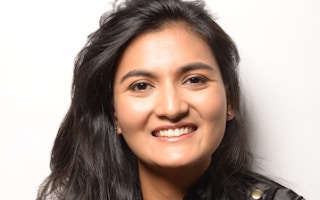Olio, a food-sharing mobile app founded in the United Kingdom in 2015, has opened an office in Singapore, and appointed Yien Li Yap as country manager.
To continue reading, subscribe to Eco‑Business.
There's something for everyone. We offer a range of subscription plans.
- Access our stories and receive our Insights Weekly newsletter with the free EB Member plan.
- Unlock unlimited access to our content and archive with EB Circle.
- Publish your content with EB Premium.
Olio connects companies or individuals with surplus food to those who want to consume it. Founded by British entrepreneurs Tessa Clarke and Saasha Celestial-One, the idea came from Clarke after she had struggled to find anyone to take the unwanted food from her fridge when she was moving house.
Olio is now operational is 49 countries, and has more than five million users worldwide. In September, the company announced US$43 million in series B funding to help it expand overseas.
The number of people using the service has quintupled in the past year. It is aiming to launch in 10 key markets in Latin America, Northern Europe and Asia, where the app has experienced strong organic growth.
Yap joins with a brief to grow the ecosystem for Olio in Singapore. Food is Singapore’s second largest domestic waste stream. About 100,000 individuals in Singapore are already using Olio to share food and non-food items. The firm partnered with online supermarket, Pandamart in March to give away the brand’s unsold food.
Yap’s ambitions for Olio include increasing local acceptance of sharing food and household items in Singapore. “This means making sharing a positive habit in homes, which on the app, would translate to seeing even more consistent user engagement,” she told Eco-Business.
She also aims to partner with a supermarket retailer, and a major food rescue organisation in Singapore to expand the operation.
Yap was previously business development manager for Winnow, a firm that produces technology to help chefs measure, monitor and reduce food waste.
Over her career, she has consulted to start-ups on food products commercialisation, worked as a commis chef, and a manager for SPRING Singapore, a government agency for small and medium enterprises.
She also managed donor and partner relationships for The Chain Reaction Project, a non-profit that uses adventure philanthropy to help women and children in developing countries.














